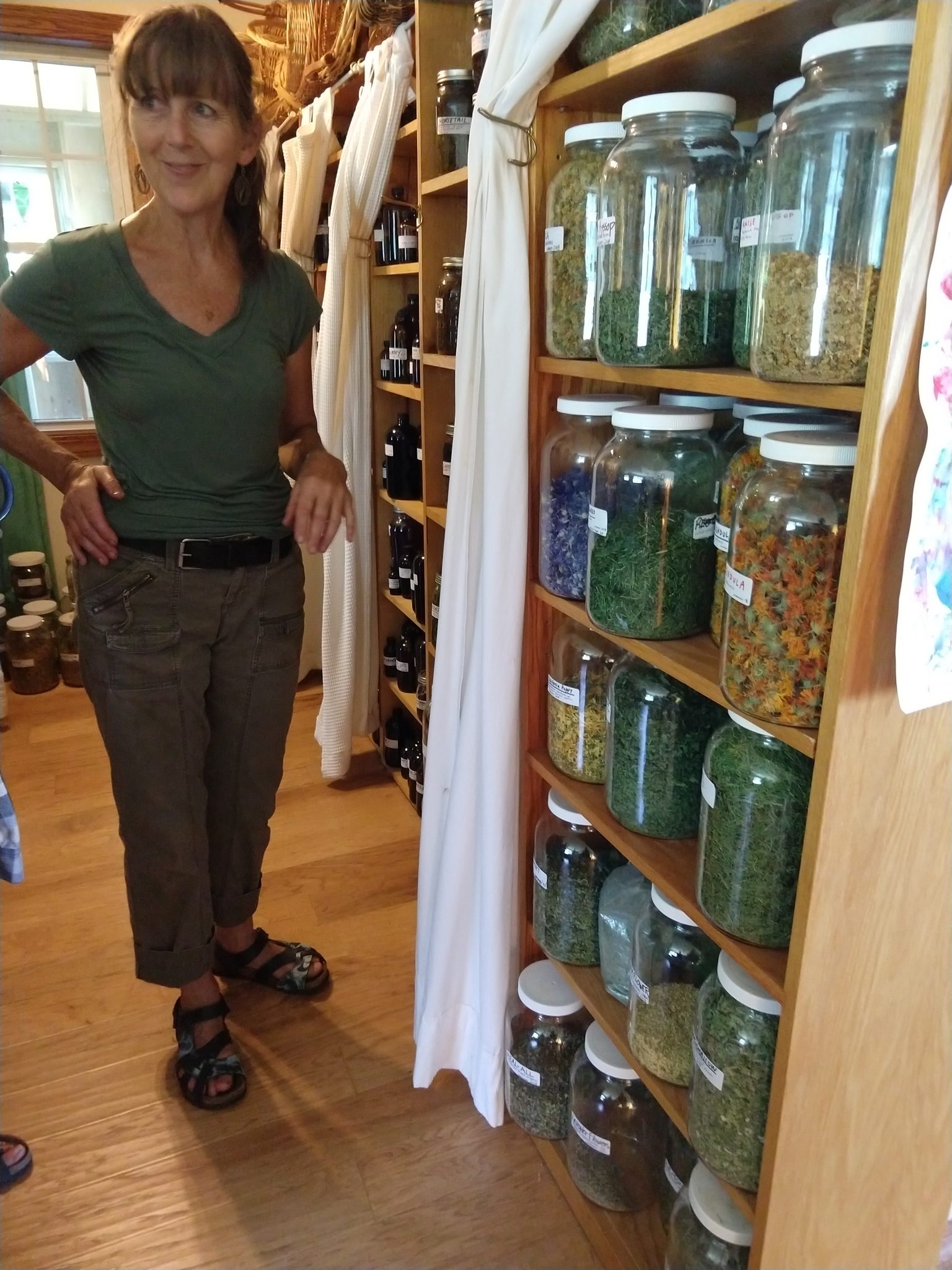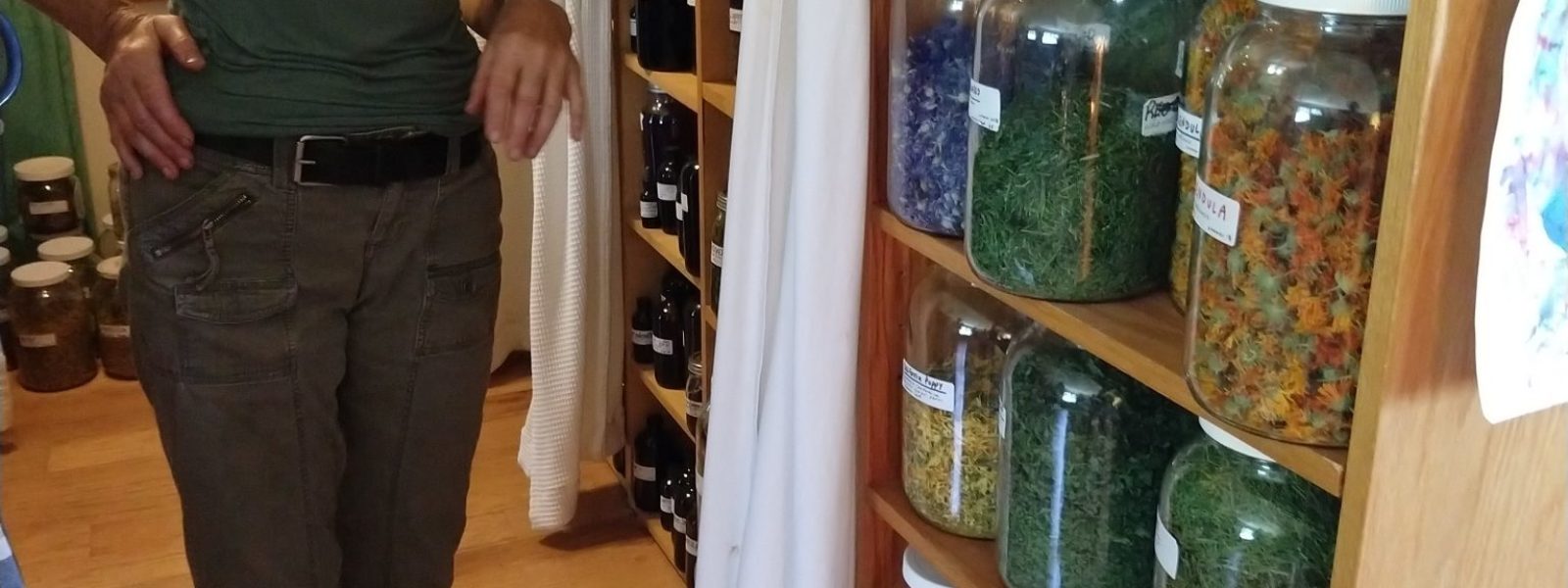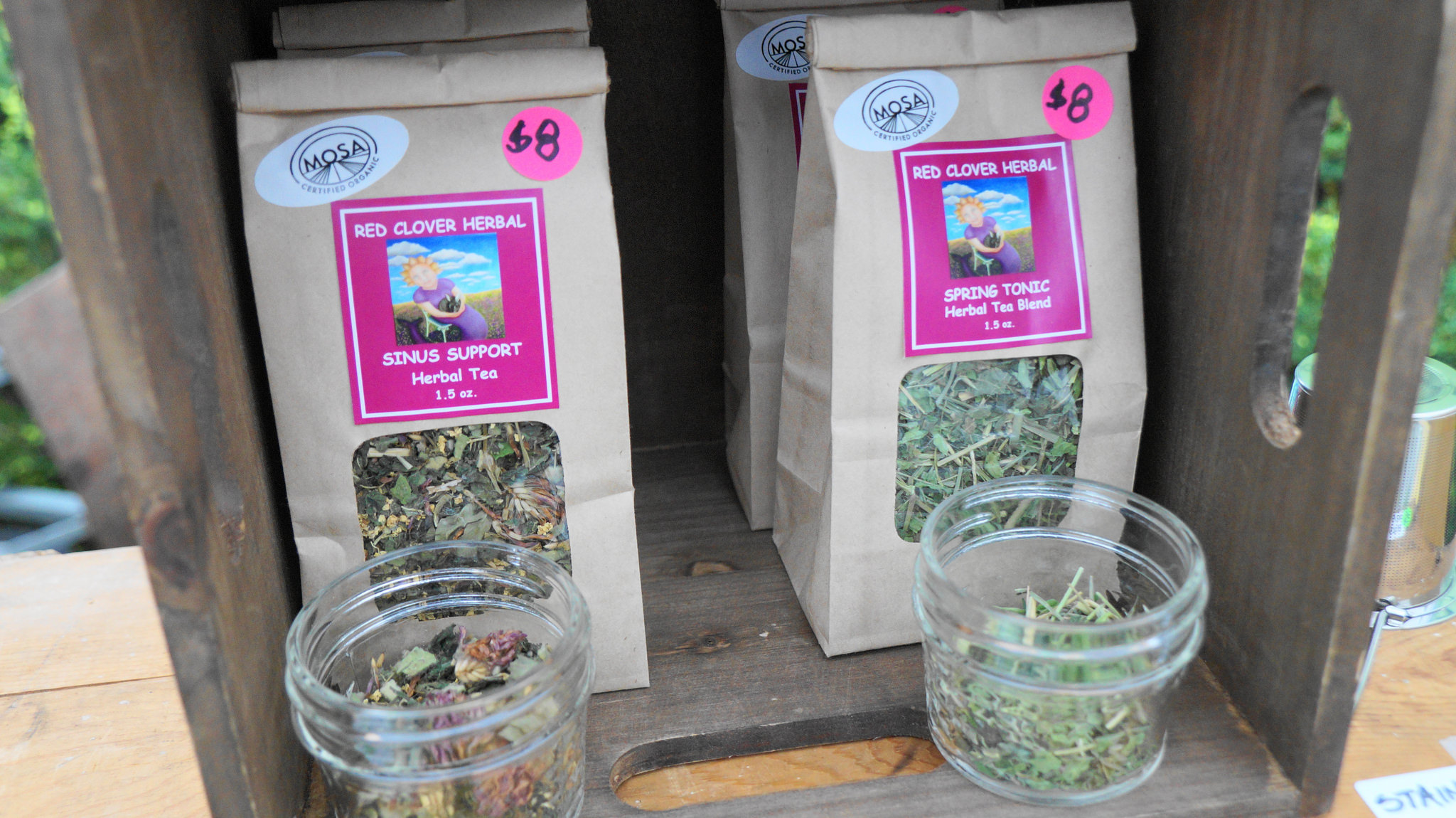After a month of parties, shopping trips, family celebrations and nights on the sledding hills, a new season is upon us–cold and flu season. The sniffly, cold weather has us reaching into our cupboards for herbal teas. Unlike black, green, white, pu-erh or oolong tea that all come from the leaves and leaf buds of the Tea Tree (Camellia sinensis), herbal teas are non-caffeinated teas made up of leaves, bark, flowers, seeds and/or other parts of numerous plants, many of which you might find in the garden or foraged from the woods!
Herbal teas are also known as tisane, herbal infusions, botanical teas or simply “plant medicine” as organic farmer and Mill City Farmers Market vendor Nancy Graden calls them.
Nancy, owner of Red Clover Herbal Apothecary Farm, grows over 50 kinds of certified organic medicinal herbs on her five-acre farm in Amery, Wisconsin. She strongly believes in the intelligence of plants and the part their gifts play in our health and wellbeing.
I think there’s so much plant medicine that can be used to heal the earth.”
Nancy who grew up on a farm in southern Indiana, first became interested in herbalism over 30 years ago, when she was living in the Ozarks and was gifted a book on medicinal herbs of the region. Inspired, Nancy began a formal education taking classes in herbalism, anatomy and physiology from the Australasian College of Health Sciences, the University of Minnesota and ultimately earned her Associates Degree from Minneapolis Community and Technical College in Western Clinical Herbalism. Nancy established her herbal practice in 2009.
With this knowledge, Nancy has been learning a plant remedy for everything and loves sharing her wisdom. Red Clover’s “Cold Season Tea Blend,” for example, includes a mix of peppermint, spearmint, marshmallow leaf and flower, mullein, anise hyssop, yarrow leaf and flower, elderflowers and thyme for antimicrobial properties and respiratory support.

Nancy’s impressive library of dried herbs and tinctures
Red Clover Herbal Apothecary’s products include direct-from-the-farm dried herbal teas, salves and balms (oils infused with botanicals mixed with beeswax to be applied to the skin), tinctures (alcohol and water infused with botanicals to be swallowed with a dropper), herb starter plants and more.
Nancy and her crew of one to two part-time staffers not only grow and forage all the herbs that go into their products, but they also do all the processing in their on-farm commercial kitchen. Nancy also makes it a point to teach monthly classes on herbalism to share her knowledge with the community.
To learn more about herbalism and to stock your medicine cabinet, you can find Red Clover Herbal Apothecary at our indoor farmers markets on February 1st and March 7th from 10 a.m. to 1 p.m. inside the Mill City Museum.
How to make loose leaf herbal tea
Bring water to a full boil or 212 degrees Fahrenheit for herbal tea (rather than anywhere from 150 to 200 degrees for caffeinated teas from the Camellia sinensis plant.) Using a tea pot or loose leaf tea steeper/infuser and a ratio of 8 ounces water per 1 heaping teaspoon tea, pour hot water over tea. Let steep for 10 minutes covered. Strain or remove steeper/infuser and enjoy!

